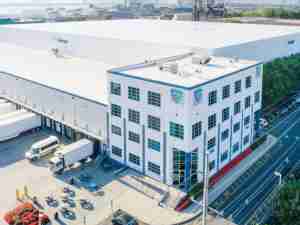
The agreement will enable the airport to benefit from U-Freight's international network to boost cargo volumes and help underpin the airport's development as an air cargo hub for Southern China.
As part of the agreement, U-Freight is making a commitment to move a significant volume of airfreight through the airport per annum, as well as helping to introduce and recommend foreign airlines to start direct connections with Baiyun International Airport.
In return, U-Freight will benefit from simplified customs clearance procedures at the airport, which will include a Safe & Honest Forwarder System, a green channel for cargo security checks and extended terminal operating hours. Ultimately, the agreement will allow U-Freight to operate 24-hours per day.
Baiyun International airport is now one of China's largest airfreight gateways. However, the majority of air cargo from the booming Pearl River Delta region is still routed via Hong Kong.
Comments Simon Wong, Chief Executive Officer of U-Freight Ltd: "U-Freight opened its first office in Guangzhou in 2002, adding an operations facility at the new airport in 2005.
"From the start, we have supported the government's development of the new Baiyun International airport. The agreement that we have signed recently will enhance the status of the airport and help it to fulfill its crucial role in supporting the further economic development of the Pearl River Delta.
"Construction of a third runway is due to start next year which, on completion in 2010, will allow the airport to handle 350,000 aircraft annually, as well as two million tons of cargo."
In China, U-Freight's network now extends to multiple facilities in most of the country's key trade gateways. The company operates under a number of brands in China including U-Freight China, U-Ocean, Shanghai Rijin, Dalian China Express and Shanghai Renaissance - each servicing different trades, types of industry, or modes of transport.
Concludes Mr. Wong: "We were one of the first foreign forwarders to operate a network of wholly owned offices in China with full legal and operational control. We have excellent relationships with all of the airport and seaport authorities and this agreement is an example of how we show our commitment to helping carriers and terminals, in order that we can all provide even better services for shippers."









